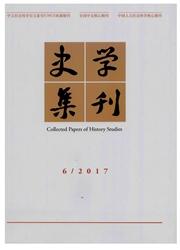

 中文摘要:
中文摘要:
1929年爆发的世界经济大萧条对英国和阿根廷两国均产生了严重冲击。为了缓解危机的不利影响,英国放弃了自由贸易政策,转而采取保护主义政策,并通过帝国特惠制将之扩大到整个英联邦国家。为了减少帝国特惠制度对阿根廷可能带来的损失,阿根廷与英国在1933年签订了《罗加-朗西曼条约》,阿根廷方面保证维护英国在阿根廷投资的根本利益;英国则承诺将从阿根廷进121的肉类配额维持在1932年的水平之上。该条约在阿根廷国内引起了巨大争议,激发了民族主义情绪的广泛传播,为庇隆主义登上历史舞台扫清了道路。庇隆主义改革激化了不同社会部门之间的矛盾,延缓了阿根廷现代化进程的步伐。从这个意义上说,《罗加-朗西曼条约》是阿根廷现代化进程的一个转折点。
 英文摘要:
英文摘要:
The Great Depression broke out in 1929 exercised serious negative influence upon both Britain and Argentina. In order to alleviate the negative impact of the crisis, the British government adopted the protectionist policy instead of the free trade policy, and expanded it to the entire British Commonwealth through the Imperial Preference System. The Argentine Government signed the Roca -Runciman Treaty with the British government in 1933 so as to reduce the probable losses caused by the Imperial Preference System. According to the treaty, Argentina would protect the fundamental interests of the British investment in Argentina; in turn, Britain should promise to maintain the beef import quota from Argentina not below the level reached in 1932. The treaty provoked a storm of protest in Argentina and fanned the spreading flames nationalism, which paved the way for the nationalist Peronism. The Peronist reforms intensified the conflicts among the different social sectors, slowed down the pace of the modernization process of Argentina. In this sense, the Roca - Runci- man Treaty is a turning point of the Argentine modernization.
 同期刊论文项目
同期刊论文项目
 同项目期刊论文
同项目期刊论文
 期刊信息
期刊信息
